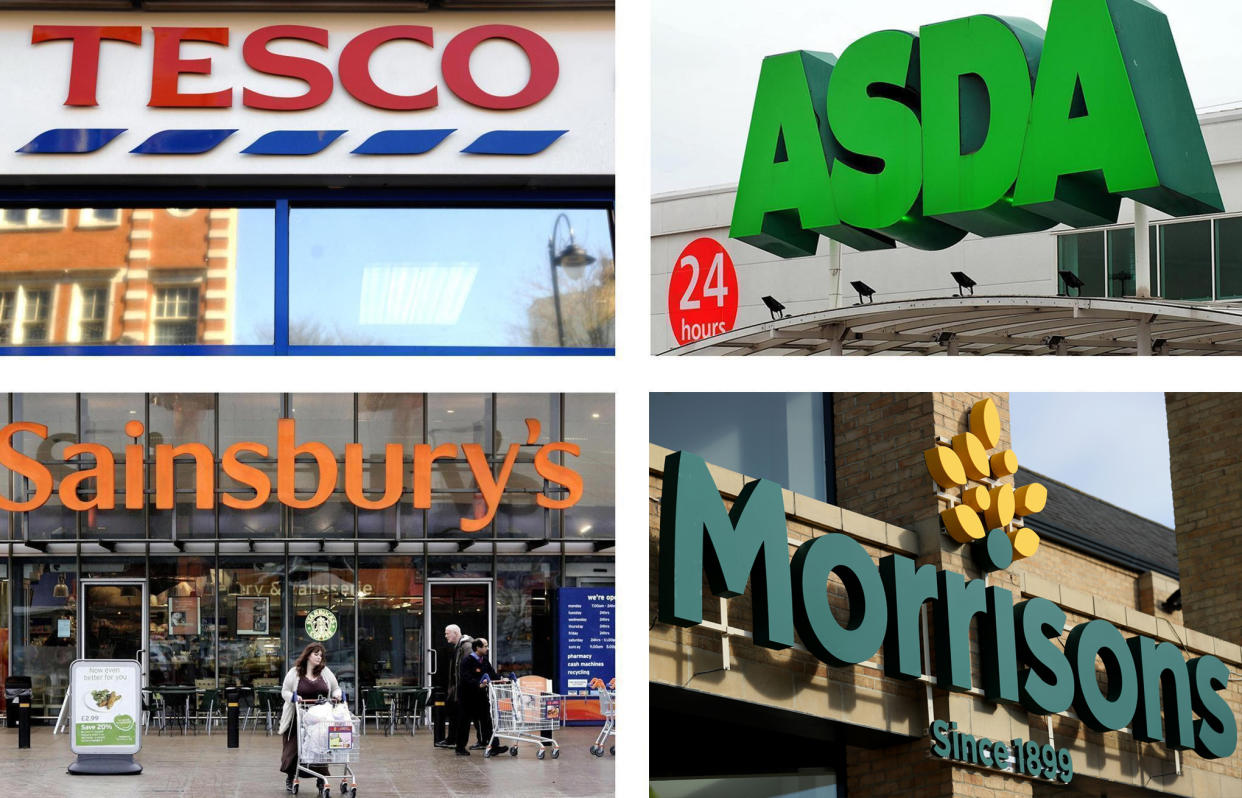Coronavirus: Tesco, Asda, and Sainsbury's announce three-item limit on groceries

Tesco (TSCO.L), Sainsbury’s (SBRY.L) and Walmart-owned (WMT) Asda all announced new limits on the number of products UK shoppers can buy on Wednesday (18 March), in a radical step to stop stockpiling spiralling out of control.
Leading supermarkets have curbed buying and introduced priority shopping hours for the elderly and vulnerable, in a bid to deal with soaring demand triggered by the escalating coronavirus pandemic.
Online retailer Ocado even suspended its website until Saturday, saying it was fully booked for the next four days. CEO Melanie Smith said demand for its deliveries was “simply staggering” and more than it could meet.
Tesco, the biggest UK supermarket, announced the most sweeping restrictions by limiting all product sales to three items. Chief executive Dave Lewis warned in a letter to staff the company is in “uncharted waters.”
Read more: UK government ‘must help renters’ after announcing mortgage holidays
Sainsbury’s, Britain’s second biggest grocer, announced a three-item limit on all grocery products on Wednesday. A two-item limit also came into effect on its most popular products, including toilet paper, long-life milk and soap.
“We have enough food coming into the system, but are limiting sales so that it stays on the shelves for longer and can be bought by a larger number of customers,” said Sainsbury’s CEO Mike Coupe in a letter shared online.
Asda announced a three-item limit on all food, toiletries and cleaning products, and urged customers to only buy what they need.
What are supermarkets changing and what are their opening hours?
Further measures announced by UK supermarkets include:
Sainsbury’s: It has set aside the first hour of trading in every supermarket from Thursday for elderly and vulnerable customers. Customers with disabilities or aged over 70 will also have priority access to online delivery slots, while cafes, meat, fish and pizza counters will close to prioritise freight capacity for essentials (Sainsbury’s opening hours here).
Iceland: Most stores will dedicate their first two hours’ trading to the elderly and vulnerable. CEO Tarsem Dhaliwal also urged customers to “be considerate” to staff (Iceland opening hours here).
Tesco: It will close all counter services and cut its 24-hour stores’ opening hours from 6am to 10pm, with overnight staff focusing on restocking stores and supporting online groceries. Vulnerable and elderly shoppers will have priority from 9am to 10am (Tesco opening hours here).
Waitrose: It has “reluctantly’ introduced limits per shopper on some of its most in-demand items online “to help ensure that our products are shared fairly.” Its website went down temporarily on Wednesday morning, and hundreds of John Lewis staff have been moved into Waitrose teams (Waitrose opening hours here).
Asda: It is closing its 24-hour stores between midnight and 6am and shutting its pizza counters and cafes to prioritise essentials (Asda opening hours here).
Aldi: It has imposed a four-item limit on all products because of “unprecedented” demand. In Australia it has limited store hours to ease the strain on staff (Aldi UK opening hours here).
Read more: Morrisons makes promise to staff on sick pay and hardship funds
Why are shoppers stockpiling?
The changes come amid a spike in demand for supermarket goods. Shoppers have cleared shelves of certain products amid fears over the coronavirus disrupting supply chains and needing the essentials if required to self-isolate.
Empty shelves have in turn sparked further stockpiling, with supermarkets ramping up efforts to meet demand and holding daily talks with the government about maintaining supplies.
Read more: The psychological and economic fallout from shoppers’ stockpiling
Growing numbers of people staying at home after the government warned against non-essential social contact are also expected to fuel demand further.
Sainsbury’s said in a separate statement that it welcomed the one-year business rate holiday announced by the UK government on Tuesday. It paid £567m ($693m) in rates in the year to 9 March last year. The company’s shares jumped 10.3% on Wednesday morning.
Tesco (TSCO.L) said it also noted the government’s announcement, and was awaiting further details.
Read more: UK announces ‘unprecedented’ stimulus package to steer economy through crisis

